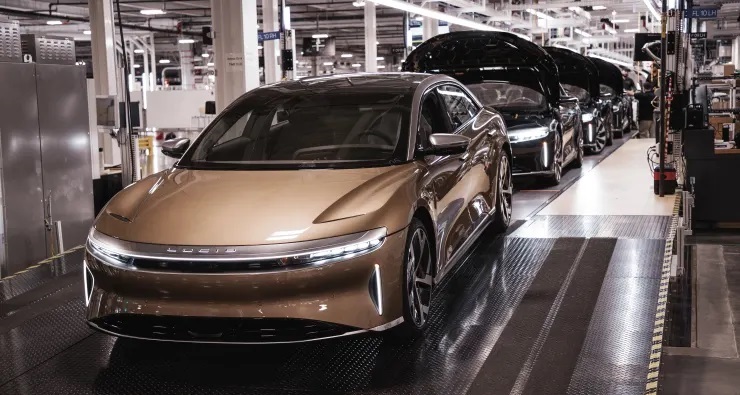
Lucid Motors intends to implement a significant restructuring plan to reduce costs and increase production of its Air luxury sedan, which includes a reduction of approximately 1,300 employees, equivalent to about 18% of its workforce.
The company stated that it expects to incur one-time charges of between $24 million and $30 million related to the workforce reduction, with the majority of these charges expected to be recognized during the first quarter of 2023.
In a letter to employees, CEO Peter Rawlinson said the job cuts will hit “nearly every organization and level, including executives,” and that affected employees will be notified over the next three days. Severance packages will include continued healthcare coverage paid by Lucid, as well as an acceleration of equity vesting, Rawlinson wrote.
Lucid ended 2022 with about $4.4 billion in cash on hand, enough to last until the first quarter of 2024, CFO Sherry House told CNBC last month ahead of the company’s fourth-quarter earnings report.
But there have been signs that demand for the high-priced Air has fallen short of Lucid’s internal expectations, and the company may be struggling to convert early reservations to sold orders.
Lucid said that it had more than 28,000 reservations for the Air as of Feb. 21, its most recent update. But it also said that it plans to build just 10,000 to 14,000 vehicles in 2023, far fewer than the roughly 27,000 that market analysts had expected.
Over the last few years, the market for electric vehicles has grown significantly as consumers have become more aware of the benefits of electric cars, including reduced emissions, improved fuel efficiency, and lower operating costs.
There have been some temporary setbacks, however, such as supply chain disruptions due to the COVID-19 pandemic and the global shortage of semiconductors, which have affected the production and availability of electric vehicles.
Additionally, some consumers may still have concerns about the cost and range limitations of electric vehicles, although these concerns are gradually being addressed as technology improves and more charging infrastructure is built.
Overall, the long-term trend for electric vehicle demand appears to be positive, with many countries and regions setting ambitious goals to transition to electric transportation and offering incentives to support this shift.